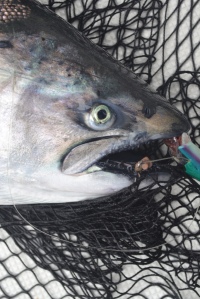We are very pleased to see the government turn down the Northern Gateway Pipeline. It comes at a cost: Kinder Morgan’s Trans Mountain Expansion and Line 3. There is still more work to be done.
Please see the new Press Release from the Council of the Haida Nation on Trudeau’s announcement. According to CHN President Peter Lantin:
“There has to be a better government-to-government consultation process to deal with these projects before they get rolling,” said Lantin. “Avoiding this type of confrontation through frank dialogue will result in more common ground. Protecting the coast and the waters surrounding Haida Gwaii is paramount for our Nation. But within this framework there is room to develop practical solutions and resolve issues nation-to-nation and to do that we have to talk.”

 Recently the British Columbia Supreme Court (“Court”) released its reasons for judgment in
Recently the British Columbia Supreme Court (“Court”) released its reasons for judgment in 